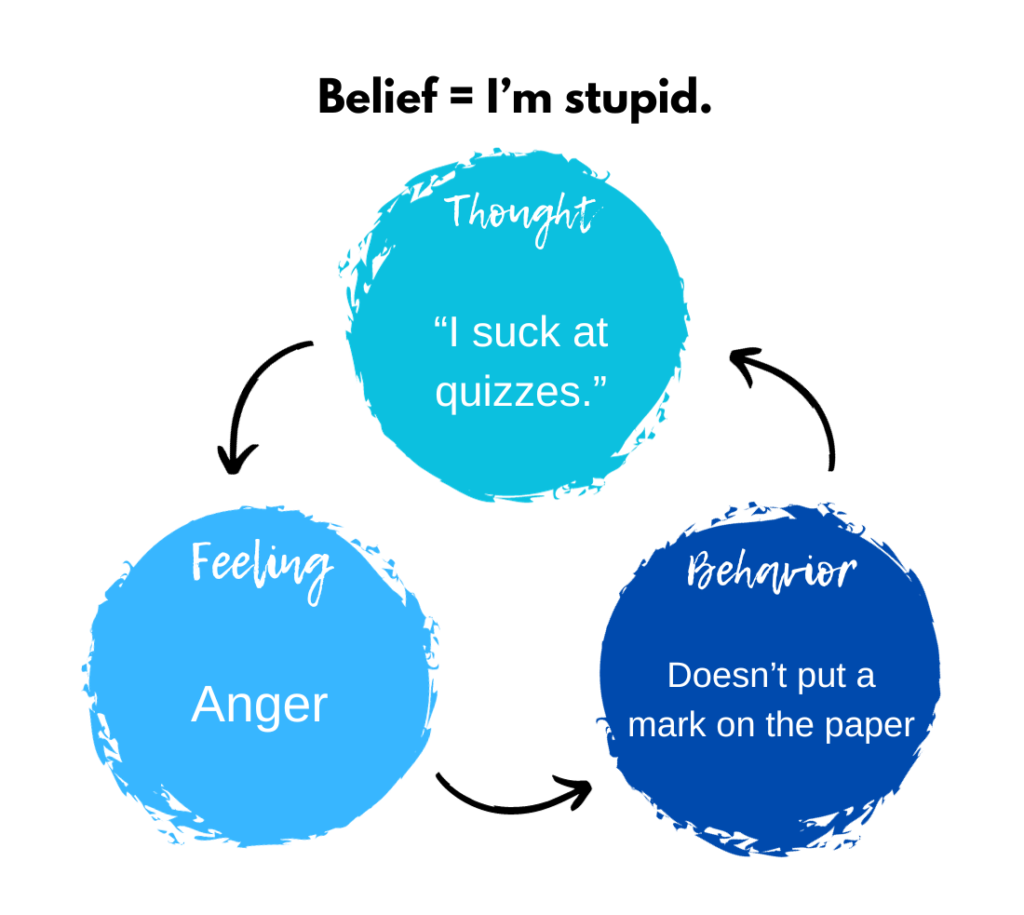
At some point in our lives, I believe we all ask ourselves the question, “Why do I do what I do?” This also includes “Why do I think what I think?” and “Why do I feel what I feel?”. This wondering is a natural, healthy, introspective instinct which can be very productive.
It takes self-awareness and intellectual curiosity to wonder about ourselves and seek out answers beyond our current knowledge base about ourselves. So how do we do this? I believe the best way is to look for patterns in our behaviors that are also linked to our thoughts and feelings.
CBT
Cognitive Behavioral Therapy (CBT) is one of the most common models of therapy. CBT was developed in the 1960s by Aaron Beck. It is a very well researched model of therapy since it lends itself to being easily researched. CBT is based on several core principles, including…
- Psychological problems are based, in part, on faulty or unhelpful ways of thinking.
- Psychological problems are based, in part, on learned patterns of unhelpful behavior.
- People suffering from psychological problems can learn better ways of coping with them, thereby relieving their symptoms and becoming more effective in their lives.
The cornerstone component of CBT is the Thoughts-Feelings-Behavior Triangle. This tool explores the relationship between your thoughts and your feelings, your feelings and your behaviors, and then your behaviors and your thoughts. It looks something like the graphic below.

Some say that everything affects everything and movement on this triangle can go in any direction. However, I am always looking for patterns, and the most prominent patterns I have found go in a counterclockwise direction beginning at the top.
Let me tell you about Johnny.
Johnny was in the 8th grade. One day he walked into class and his teacher said, “Pop quiz!” The groans could be heard around the room, but what happened in Johnny’s head was, “I suck at quizzes.” Then he got angry. And to demonstrate his feeling of anger, he didn’t put a mark on the paper.
That is a pattern; A thought, then a feeling, then a behavior. And we do this a thousand times a day or more. Every decision and choice flows through this triangle… thought, feeling, behavior… thought, feeling, behavior.
Here’s the interesting part… Last year in 7th grade, Johnny got straight A’s, so what happened? Over the summer in between 7th and 8th grade, one of Johnny’s friends made a statement that caused Johnny to question his own intelligence, which he had never done before. “Maybe I’m not as smart as I think I am.” His friend didn’t say he was stupid. Johnny’s interpretation and furtherance of what was said is what propelled him into questioning his own intelligence.
Beliefs
The important additional piece is his belief. A belief (false, negative) is always sitting there waiting to be acted upon. These beliefs usually come from the negative experiences in life. In Johnny’s case, his belief became “I’m stupid.” How might this belief have shaped his response to “Pop quiz!”?
Our beliefs drive the bus on everything we think and feel and do. They are a strong, oftentimes nonconscious, motivator in our day to day life. A person’s beliefs about themselves and the world around them shape everything that happens in their life. “I’m stupid” leads to a very different result than “I’m intelligent.”
Why?
Putting together these patterns of thinking, feeling, and behaving with the beliefs that fuel them can give you a pretty good handle on why you might do what you do. Once those patterns are recognized, you can interrupt them in multiple places. And knowing what the negative beliefs are, and then where they came from, gives you some work to do with someone who can lead you through those experiences.
Understanding why we do what we do takes patience, courage and persistence. But in the end, once the patterns are altered and the negative beliefs changed or resolved, it will all be worth it.
Related: The Purpose of Therapy
If you would like to explore why you do what you do, we would love to help you with that. Give us a call to begin the process of understanding some of your great mysteries.
- Avoidance Behavior - April 23, 2024
- Stop Lying To Yourself - April 9, 2024
- Trauma: Two Significant Brain Changes - March 26, 2024
